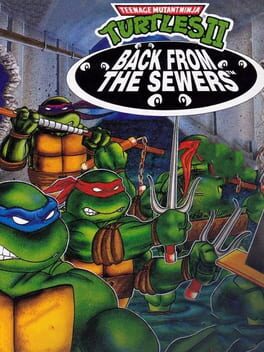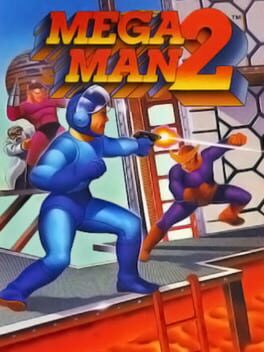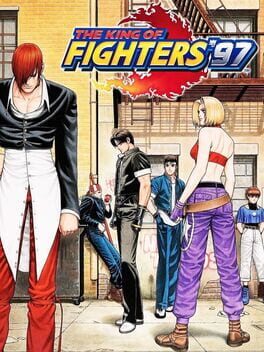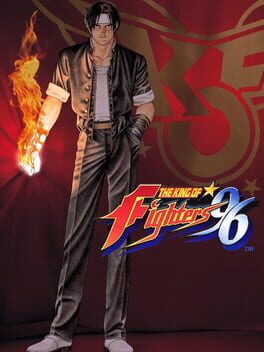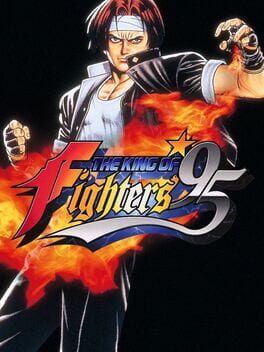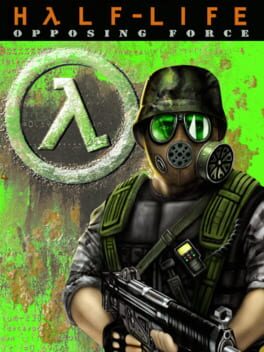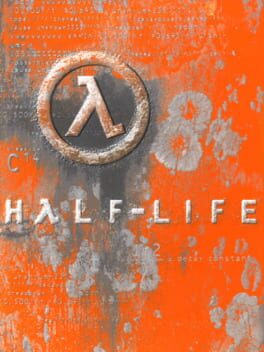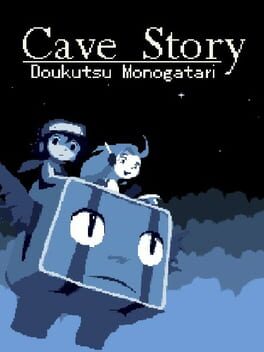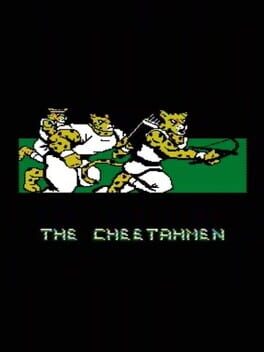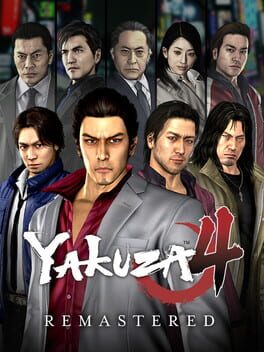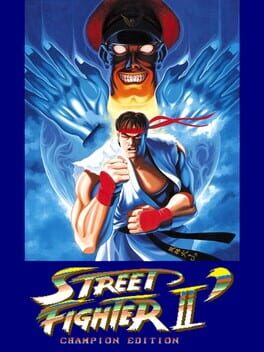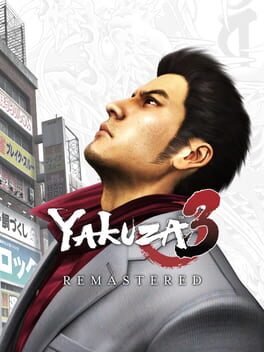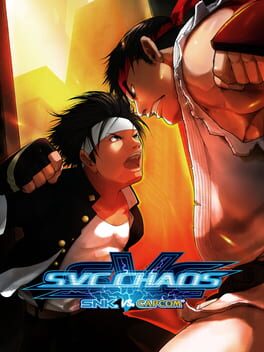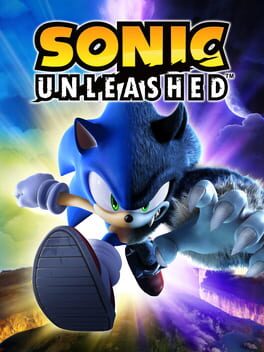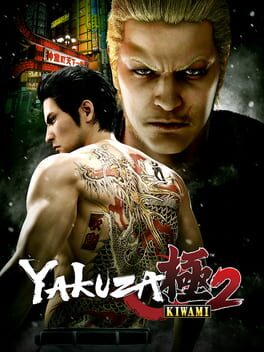TheRealKaisser
1989
Even after replaying and enjoying the first Half-Life more, I still think this is the better game overall. It may not have had the same impact and importance the first game had, but in terms of enjoyment factor and consistency, this easily takes it. Also helps that this game did an amazing job of expanding upon the world of Half-Life and showed it from a different perspective. Bring back Adrian Shephard
1998
On a whim, I decided to replay this game to see how I feel about it currently. While I still don't think it's perfect due to On A Rail and the Xen chapters really bringing the game down, I had a much better time with the game overall. Playing the sequels and Black Mesa along with being more familiar with FPS games greatly helped me appreciate this title even more. I continue to respect the game for being so innovative in many ways and managed to find new enjoyment in it now.
2004
Despite some minor issues I had with the game (Mainly how the difficulty later on felt more annoying than fun at times), I can see why it has become so beloved by many. Great story and characters, nice gameplay with a really unique weapon mechanic with some wonderful variety with the weapons, an amazing soundtrack, charming graphics. Overall, I had a great time with the game overall, can definitely recommend it to those who haven't played it already.
1991
2019
This review contains spoilers
Note: Just like with Y3 Remastered, I decided to install a few mods, though it mainly focused on making the game look a little nicer and have it more closely resemble how it appeared on the PS3. This includes uncensoring the game's songs, restoring Tanimura's original actor into the game, restoring the Quickstep to how it was originally, and using a 4K font. These hopefully shouldn't affect my opinion of the game too much though since I tried to keep it as close to vanilla as possible.
- First of all, I was most curious about with this game was how I thought about the story. I already heard from quite a people about how much of a mess the story was, especially when it came to its twists (I already heard more than enough jokes when it came to the "Rubber Bullets" twist even before playing the game and knowing the full context), so I was curious as to how I felt about it. Even though I had some issues with the story, mainly how Yasuko/Lily felt more like a plot device to get all the main leads together rather than a truly fleshed out character, and the rubber bullets twist being just as stupid as I was expecting to the point where I was ironically cheering for it whenever it was brought up. But other than those main two things, I really didn't have many issues. The story kept at a good pace unlike Yakuza 1 and I thought it was cool seeing different events happen through the lens of the different playble characters, and seeing how it all ties in the end. I do wish we got to spend more time with the main characters as a team, since Kiryu's sidequests in the finale does showcase them working together, and it was really cool to see how their personalities played off with one another, it's not that big of a deal, but I really wished we got more of that instead of them going solo in their own stories. Overall, while it is a bit of a messy story, it is FAR from the worse story I've seen in this series as well as other games I've played.
- I think the choice of expanding Kamurocho into having underground and rooftop sections, while interesting and cool to see, didn't feel like it was used to its fullest. For the story alone, I felt it was only primarily used in Saejima and Tanimura's section of the story and wasn't used much with Akiyama or Kiryu's part of the story. It does get used more in substory stuff, but it was never to the point where I fell in love with it. It's still a cool idea, but compared to Okinawa from the last game and how unique it was to Kamurocho, it is a bit of a downgrade.
- The combat, which I'm happy to report on, is probably one of the most unique and memorable aspects of the game. To make things easier on myself, I'm gonna rank the fighters and describe what I liked about each of them.
1. Tanimura - Easily one of the most creative fighting styles I've seen in this series so far. His parrying system and the amount of different heat actions you can do after any of his moves make him such a joy to play as no matter what. Even during the final boss where I've heard so many say is the low point of the finale, I really didn't have much problem with using Tanimura and was able to get through it just fine (Though it was a bit annoying at times)
2. Kiryu - Kiryu really didn't change all that much going from Y3 to 4, but he does feel more refined in some of his tools, and I was genuinely surprised that unlike other games, Kiryu actually kept some of the skills he had from the last game, making him feel like a New Game+ version of K3 Kiryu without being too overpowered. Overall, a really cool version of the character.
3. Saejima - While his style of big slow and strong attacks doesn't mesh 100% of the time with the stuff he goes through (Mainly his fights with Saito which I felt had a really sudden difficulty spike), I still thought his style was to go through. His moves are satisfying when pulled off and seeing some of the things he did that would transfer over to Dragon Engine Kiryu (Mainly the charge moves and some heat actions) was pretty cool to witness. Still preferred Kiryu and Tanimura, but I enjoyed playing as Saejima.
4. Akiyama - He never felt bad to play, but it never felt like I got enough time to really explore him in depth. He's only around for the beginning of the game, and the time you last play him up until the finale is such a long wait, that I don't really get a chance to truly explore his potential. He's still a fine character to play as, and I do like how flashy yet smooth he plays just like how he is portrayed, but I just wished he had a bit more screentime with combat.
- I was pretty surprised in how this game handles its sidequests. Not only were the sidequests roughly the same amount as Y3, but divided into the four main characters to where each of them only get a pretty small amount of them compared to Kiryu in previous games, but the tones in them were a bit different than before. The substories in 4 never felt nearly as lighthearted or silly as previous games (Though some still retained that) and many of them either had surprisingly big connections to the story, had arcs that spanned over many substories with an end, or provide a surprisingly serious and impactful tone that made me a bit emotional at times (Mainly White Lies in Kiryu's substories). idk if I would call these the best/my favorite substories in the series, but they are probably some of the most unique and memorable ones so far.
-The graphics, while not being too different from Y3, are still nice and show some improvements from that game, and the soundtrack is still amazing as ever. I like how each of the main characters got a different set of songs for their situations, and it made them that more unique from each other. My favorite songs in this game to me is the main theme, For Faith, along with the rendition of Recieve You that plays in the credits.
Overall, while the somewhat messy story, lack of impact of Kamurocho's new areas, and slightly inconsistent difficulty does bring it down to being my least favorite in the series so far, I still think it's a pretty great game. It does show progress and change in the series with it introducing multiple playable characters and tying their stories together, and it brings in more worldbuilding to the Yakuza series for both new and existing characters, which is always nice to see. It's now gotten me more curious as to how Yakuza 5 will expand and possibly fix some of the issues I have with 4, but so, I'm still glad I got to give this a shot.
- First of all, I was most curious about with this game was how I thought about the story. I already heard from quite a people about how much of a mess the story was, especially when it came to its twists (I already heard more than enough jokes when it came to the "Rubber Bullets" twist even before playing the game and knowing the full context), so I was curious as to how I felt about it. Even though I had some issues with the story, mainly how Yasuko/Lily felt more like a plot device to get all the main leads together rather than a truly fleshed out character, and the rubber bullets twist being just as stupid as I was expecting to the point where I was ironically cheering for it whenever it was brought up. But other than those main two things, I really didn't have many issues. The story kept at a good pace unlike Yakuza 1 and I thought it was cool seeing different events happen through the lens of the different playble characters, and seeing how it all ties in the end. I do wish we got to spend more time with the main characters as a team, since Kiryu's sidequests in the finale does showcase them working together, and it was really cool to see how their personalities played off with one another, it's not that big of a deal, but I really wished we got more of that instead of them going solo in their own stories. Overall, while it is a bit of a messy story, it is FAR from the worse story I've seen in this series as well as other games I've played.
- I think the choice of expanding Kamurocho into having underground and rooftop sections, while interesting and cool to see, didn't feel like it was used to its fullest. For the story alone, I felt it was only primarily used in Saejima and Tanimura's section of the story and wasn't used much with Akiyama or Kiryu's part of the story. It does get used more in substory stuff, but it was never to the point where I fell in love with it. It's still a cool idea, but compared to Okinawa from the last game and how unique it was to Kamurocho, it is a bit of a downgrade.
- The combat, which I'm happy to report on, is probably one of the most unique and memorable aspects of the game. To make things easier on myself, I'm gonna rank the fighters and describe what I liked about each of them.
1. Tanimura - Easily one of the most creative fighting styles I've seen in this series so far. His parrying system and the amount of different heat actions you can do after any of his moves make him such a joy to play as no matter what. Even during the final boss where I've heard so many say is the low point of the finale, I really didn't have much problem with using Tanimura and was able to get through it just fine (Though it was a bit annoying at times)
2. Kiryu - Kiryu really didn't change all that much going from Y3 to 4, but he does feel more refined in some of his tools, and I was genuinely surprised that unlike other games, Kiryu actually kept some of the skills he had from the last game, making him feel like a New Game+ version of K3 Kiryu without being too overpowered. Overall, a really cool version of the character.
3. Saejima - While his style of big slow and strong attacks doesn't mesh 100% of the time with the stuff he goes through (Mainly his fights with Saito which I felt had a really sudden difficulty spike), I still thought his style was to go through. His moves are satisfying when pulled off and seeing some of the things he did that would transfer over to Dragon Engine Kiryu (Mainly the charge moves and some heat actions) was pretty cool to witness. Still preferred Kiryu and Tanimura, but I enjoyed playing as Saejima.
4. Akiyama - He never felt bad to play, but it never felt like I got enough time to really explore him in depth. He's only around for the beginning of the game, and the time you last play him up until the finale is such a long wait, that I don't really get a chance to truly explore his potential. He's still a fine character to play as, and I do like how flashy yet smooth he plays just like how he is portrayed, but I just wished he had a bit more screentime with combat.
- I was pretty surprised in how this game handles its sidequests. Not only were the sidequests roughly the same amount as Y3, but divided into the four main characters to where each of them only get a pretty small amount of them compared to Kiryu in previous games, but the tones in them were a bit different than before. The substories in 4 never felt nearly as lighthearted or silly as previous games (Though some still retained that) and many of them either had surprisingly big connections to the story, had arcs that spanned over many substories with an end, or provide a surprisingly serious and impactful tone that made me a bit emotional at times (Mainly White Lies in Kiryu's substories). idk if I would call these the best/my favorite substories in the series, but they are probably some of the most unique and memorable ones so far.
-The graphics, while not being too different from Y3, are still nice and show some improvements from that game, and the soundtrack is still amazing as ever. I like how each of the main characters got a different set of songs for their situations, and it made them that more unique from each other. My favorite songs in this game to me is the main theme, For Faith, along with the rendition of Recieve You that plays in the credits.
Overall, while the somewhat messy story, lack of impact of Kamurocho's new areas, and slightly inconsistent difficulty does bring it down to being my least favorite in the series so far, I still think it's a pretty great game. It does show progress and change in the series with it introducing multiple playable characters and tying their stories together, and it brings in more worldbuilding to the Yakuza series for both new and existing characters, which is always nice to see. It's now gotten me more curious as to how Yakuza 5 will expand and possibly fix some of the issues I have with 4, but so, I'm still glad I got to give this a shot.
2018
Note: while I did not install any major gameplay mods to change how the game plays, I did install a Quickstep restoration mod that makes it function more in line with the original PS3 release compared to the Remaster, so keep that in mind. Also, despite playing and loving Kiwami 2 before this, I will not be making any kind of comparisons between the two since I feel it would be unfair given how both games were made in very different periods with one not having as experience or mechanics to improve and fix upon. With that out of the way.....
Going into this, I was told by a few people that this game isn't viewed as highly as other games in the series, especially when it comes to its combat and frustrating AI. However, I wasn't sure if it was because I was on the Normal difficulty or I went out of my to do so many of the substories that I became a bit overprepared and overpowered many of the main stories enemies, but I never really seem to have much issue with the game, in fact, I ended up loving it more than anything.
- The story is a definite improvement from 1 and 2, not only from its pacing where nothing felt like it was added to be filler, to the additions of new characters and old characters that felt very natural (Though I felt the addition of Joji Kazama felt a bit silly). Also, I absolutely loved the stuff with Kiryu and him spending time with the kids at the Orphanage. It's probably some of the most sweet and wholesome moments and it gives a new side to Kiryu's character that make him that more compelling of a character. It honestly made me wish we got a spin-off that is just a slice-of-life story of Kiryu spending time and helping out Morning Glory and giving the kids valuable life lessons like what Yakuza 3 showed.
- While I did notice a downgrade in combat compared to what I just experienced in Kiwami 2, it really wasn't enough for me to complain about how it plays, and I did get used to it quickly. I did notice enemies were more defensive, though it never felt overwhelming and there weren't many fights that gave me a lot of trouble, especially since I know how to use and manage healing items now.
- The substories, as usual, are still top notch and I was making sure I took time to do as many as I could during certain points in the story. I was surprised by just how many of them were continuations of sub-stories from Yakuza 2 and I especially like the new ones the game introduced, especially the Revelation sub-stories with its hilarious scenarios. Not every sub-story was great though since I really wasn't a fan of the Hostess sub story, didn't bother doing any of the Hitman missions, and I was pretty annoyed that the game never tells you about the Haruka's trust side quest until I found out at the very end of the game in Kamurocho. But even then, this wasn't enough for me to hate them at all.
- For a title released a few years into the PS3's life, I think it still holds up pretty well. The animations do look a bit unnatural but the models and environments do look pretty nice and the cutscenes look pretty good as well. The soundtrack is also very good and got a kick out of some of the songs.
Overall, while I don't think it's a perfect game, I ended up loving it way more than I was expecting. I can definitely tell there is plenty of changes made to how Yakuza handles in both gameplay and story and it's gotten me more curious as to how the series moves forward. Overall, a fun and satisfying game that gives you plenty to do, and showcases a great evolution in the Yazkua series.
If this is what people consider to be the low point in the series, then I think I'm in for quite a treat for these next few games.
Going into this, I was told by a few people that this game isn't viewed as highly as other games in the series, especially when it comes to its combat and frustrating AI. However, I wasn't sure if it was because I was on the Normal difficulty or I went out of my to do so many of the substories that I became a bit overprepared and overpowered many of the main stories enemies, but I never really seem to have much issue with the game, in fact, I ended up loving it more than anything.
- The story is a definite improvement from 1 and 2, not only from its pacing where nothing felt like it was added to be filler, to the additions of new characters and old characters that felt very natural (Though I felt the addition of Joji Kazama felt a bit silly). Also, I absolutely loved the stuff with Kiryu and him spending time with the kids at the Orphanage. It's probably some of the most sweet and wholesome moments and it gives a new side to Kiryu's character that make him that more compelling of a character. It honestly made me wish we got a spin-off that is just a slice-of-life story of Kiryu spending time and helping out Morning Glory and giving the kids valuable life lessons like what Yakuza 3 showed.
- While I did notice a downgrade in combat compared to what I just experienced in Kiwami 2, it really wasn't enough for me to complain about how it plays, and I did get used to it quickly. I did notice enemies were more defensive, though it never felt overwhelming and there weren't many fights that gave me a lot of trouble, especially since I know how to use and manage healing items now.
- The substories, as usual, are still top notch and I was making sure I took time to do as many as I could during certain points in the story. I was surprised by just how many of them were continuations of sub-stories from Yakuza 2 and I especially like the new ones the game introduced, especially the Revelation sub-stories with its hilarious scenarios. Not every sub-story was great though since I really wasn't a fan of the Hostess sub story, didn't bother doing any of the Hitman missions, and I was pretty annoyed that the game never tells you about the Haruka's trust side quest until I found out at the very end of the game in Kamurocho. But even then, this wasn't enough for me to hate them at all.
- For a title released a few years into the PS3's life, I think it still holds up pretty well. The animations do look a bit unnatural but the models and environments do look pretty nice and the cutscenes look pretty good as well. The soundtrack is also very good and got a kick out of some of the songs.
Overall, while I don't think it's a perfect game, I ended up loving it way more than I was expecting. I can definitely tell there is plenty of changes made to how Yakuza handles in both gameplay and story and it's gotten me more curious as to how the series moves forward. Overall, a fun and satisfying game that gives you plenty to do, and showcases a great evolution in the Yazkua series.
If this is what people consider to be the low point in the series, then I think I'm in for quite a treat for these next few games.
2008
Note: To make my replay of this game more comfortable, I decided to install 2 major mods for the game that will help improve my experience of the game overall.
No Medal Requirements - Basically removes any need to collect any medals to unlock any stages and progress the game, cutting any unnecessary backtracking the game had to nothing.
Battle Music Fix - Removes the trigger for the Werehog battle music to play whenever enemies are fought, purely there to make sure I don't crazy listening to the song again and again and can enjoy the actual stage music.
With that out of the way, I was pleasantly surprised about how much I enjoyed this way more compared to my previous playthrough back in 2020, with things feeling a lot more consistent than I remembered and overall having a better time with the game, though it is still not perfect.
Day Time Stages:
- While I still felt the control and gameplay for the 3D Boost gameplay felt more refined in Colors and especially Generations, I still had a pretty good time with them.
- I didn't have issues with many of the daytime stages, and what issues I had mainly came down to either very minor difficulty spikes or platforming that didn't work due to the game's slippery controls when trying slowly platform in the daytime stages (Though it was only bad in Chun-Nan and Adabat where they were the most prevalent)
- Finally, I felt that the upgrades for Day Sonic, while a bit noticeable especially in the Ring meter upgrades, didn't feel quite as drastic as the Werehog upgrades, which I'll get into shortly.
Night Time Stages:
- This was the part of the game I was most curious about when replaying it, mainly since I've played so many proper action games when I last played Unleashed (Devil May Cry series, Bayonetta 1, Metal Gear Rising, Transformers Devastations) that I wondered if the Werehog sections still hold up or aged poorly.
- First of all, I'm happy to report that I still got plenty of enjoyment from the level design, with its varied locations, puzzles, and the game rewarding you for exploring around, I especially like it more now since I didn't feel like the game didn't throw as many cheap tricks as I remembered before (Though Chun-nan and Holoska were minor exceptions to this).
- More importantly, though, I ended up enjoying the Werehog gameplay just as much if not slightly more than the Day Time gameplay. While the Werehog does start a bit unimpressive with having a very limited movelist, if you take the time to upgrade his moveset (And by that, I mean taking advantage of an exploit with the Wandering Salesman that allows you to gain infinite money and buy a shit ton of exp food which I did) then the Werehog ends up becoming way more fun to use. There are so many cool moves and combinations to use on the character that it made me wish there was an entire game dedicated to this playstyle (Which will probably never happen but that's beside the point).
Overall, while I still don't think it deserves the hidden masterpiece status that so many Sonic fans have claimed it to be, I still think it's a pretty great game on its own. I'm still able to enjoy the simple yet great story, its incredible worldbuilding, great-looking graphics, and amazing music along with being much more appreciative of both of its gameplay styles, even if the game needed some refining on its level design and progression with the sun and moon medals.
Also, Eggmanland isn't that hard, you all just need to get good.
No Medal Requirements - Basically removes any need to collect any medals to unlock any stages and progress the game, cutting any unnecessary backtracking the game had to nothing.
Battle Music Fix - Removes the trigger for the Werehog battle music to play whenever enemies are fought, purely there to make sure I don't crazy listening to the song again and again and can enjoy the actual stage music.
With that out of the way, I was pleasantly surprised about how much I enjoyed this way more compared to my previous playthrough back in 2020, with things feeling a lot more consistent than I remembered and overall having a better time with the game, though it is still not perfect.
Day Time Stages:
- While I still felt the control and gameplay for the 3D Boost gameplay felt more refined in Colors and especially Generations, I still had a pretty good time with them.
- I didn't have issues with many of the daytime stages, and what issues I had mainly came down to either very minor difficulty spikes or platforming that didn't work due to the game's slippery controls when trying slowly platform in the daytime stages (Though it was only bad in Chun-Nan and Adabat where they were the most prevalent)
- Finally, I felt that the upgrades for Day Sonic, while a bit noticeable especially in the Ring meter upgrades, didn't feel quite as drastic as the Werehog upgrades, which I'll get into shortly.
Night Time Stages:
- This was the part of the game I was most curious about when replaying it, mainly since I've played so many proper action games when I last played Unleashed (Devil May Cry series, Bayonetta 1, Metal Gear Rising, Transformers Devastations) that I wondered if the Werehog sections still hold up or aged poorly.
- First of all, I'm happy to report that I still got plenty of enjoyment from the level design, with its varied locations, puzzles, and the game rewarding you for exploring around, I especially like it more now since I didn't feel like the game didn't throw as many cheap tricks as I remembered before (Though Chun-nan and Holoska were minor exceptions to this).
- More importantly, though, I ended up enjoying the Werehog gameplay just as much if not slightly more than the Day Time gameplay. While the Werehog does start a bit unimpressive with having a very limited movelist, if you take the time to upgrade his moveset (And by that, I mean taking advantage of an exploit with the Wandering Salesman that allows you to gain infinite money and buy a shit ton of exp food which I did) then the Werehog ends up becoming way more fun to use. There are so many cool moves and combinations to use on the character that it made me wish there was an entire game dedicated to this playstyle (Which will probably never happen but that's beside the point).
Overall, while I still don't think it deserves the hidden masterpiece status that so many Sonic fans have claimed it to be, I still think it's a pretty great game on its own. I'm still able to enjoy the simple yet great story, its incredible worldbuilding, great-looking graphics, and amazing music along with being much more appreciative of both of its gameplay styles, even if the game needed some refining on its level design and progression with the sun and moon medals.
Also, Eggmanland isn't that hard, you all just need to get good.
2017
This review contains spoilers
So....why do people not like this game exactly? No seriously, I legit do not understand the somewhat bad rep this game has gotten compared to other titles in the series, especially given how this might be some of the most fun I've had out of the three Yakuza games I've played.
- The story, while not on par with 0's incredible story, is a lot better than Kiwami 1's, mainly in how it didn't feel like a lot of filler was happening and it was beginning to nail the personalities of the characters down. With that being said, there are still issues I had with it, mainly with some loose ends that were never really tied up like Date's plot of trying to prove his innocence of the Kazuki footage and what happened with Takashi.
- As always, the side content proves to be a real highlight of the game and I spent hours of the game not going through the story, but to see what kind of odd and memorable side quests I was able to do next, though it did make me a bit overprepared for the final moments of the game with how many of them I did.
- Even though I was initially uncomfortable with the Hostess minigame during Yakuza 0, I decided to give it another shot in Kiwami 2. Surprisingly enough, I ended up enjoying it way more than I thought and I was able to get the hang of things very quickly, which made it a surprisingly fun experience overall. Though I didn't pay attention to Majima Construction nearly as much, I didn't hate it at all however.
- The performances and music are still top-notch as always.
- Finally, and the main reason why I ended up enjoying this game so much, was mainly with how this is my first experience with a Yakuza game running on the Dragon Engine. Unlike Kiwami 1 where I was able to immediately tell what assets and mechanics were directly reused from Yakuza 0 and realize how much of 0 was used as the backbone for Kiwami's gameplay, I did not play the previous Dragon Engine game, Yakuza 6 (And will not until I've taken care of the Remastered trilogy), which meant that I didn't know what was new to Kiwami 2 specifically and what was reused from 6, so a lot of new mechanics and changes to the Dragon Engine I experienced first hand with this. And I am glad I did because the gameplay out of the three I played is easily my favorite.
- The combat feels very smooth and nice to do compared to what I've experienced before, and I especially love the way upgrades were handled where you had to consider what to spend on each of the experience point categories rather than what 0 and Kiwami did. It made for a great system that made me look forward to fighting the random encounters more than ever. The changes the Dragon Engine made to the overworld and the overall feel of the game made it an incredibly pleasant experience as well, with no real issues I had while traversing through Kamurocho and Sobertoni.
Overall, while I'm not sure if I would call this my favorite game in the series as I felt 0 had a much better plot, I'm still very impressed with what this game offered, along with it being my first impression of the Dragon Engine. It's now gotten more curious as to what the rest of the series has to show, even when I know 3-5 are games that were made before this and didn't have time to be perfected, I'm still going into them with an open mind whenever I play them.
God damn, RGG continues to impress.
- The story, while not on par with 0's incredible story, is a lot better than Kiwami 1's, mainly in how it didn't feel like a lot of filler was happening and it was beginning to nail the personalities of the characters down. With that being said, there are still issues I had with it, mainly with some loose ends that were never really tied up like Date's plot of trying to prove his innocence of the Kazuki footage and what happened with Takashi.
- As always, the side content proves to be a real highlight of the game and I spent hours of the game not going through the story, but to see what kind of odd and memorable side quests I was able to do next, though it did make me a bit overprepared for the final moments of the game with how many of them I did.
- Even though I was initially uncomfortable with the Hostess minigame during Yakuza 0, I decided to give it another shot in Kiwami 2. Surprisingly enough, I ended up enjoying it way more than I thought and I was able to get the hang of things very quickly, which made it a surprisingly fun experience overall. Though I didn't pay attention to Majima Construction nearly as much, I didn't hate it at all however.
- The performances and music are still top-notch as always.
- Finally, and the main reason why I ended up enjoying this game so much, was mainly with how this is my first experience with a Yakuza game running on the Dragon Engine. Unlike Kiwami 1 where I was able to immediately tell what assets and mechanics were directly reused from Yakuza 0 and realize how much of 0 was used as the backbone for Kiwami's gameplay, I did not play the previous Dragon Engine game, Yakuza 6 (And will not until I've taken care of the Remastered trilogy), which meant that I didn't know what was new to Kiwami 2 specifically and what was reused from 6, so a lot of new mechanics and changes to the Dragon Engine I experienced first hand with this. And I am glad I did because the gameplay out of the three I played is easily my favorite.
- The combat feels very smooth and nice to do compared to what I've experienced before, and I especially love the way upgrades were handled where you had to consider what to spend on each of the experience point categories rather than what 0 and Kiwami did. It made for a great system that made me look forward to fighting the random encounters more than ever. The changes the Dragon Engine made to the overworld and the overall feel of the game made it an incredibly pleasant experience as well, with no real issues I had while traversing through Kamurocho and Sobertoni.
Overall, while I'm not sure if I would call this my favorite game in the series as I felt 0 had a much better plot, I'm still very impressed with what this game offered, along with it being my first impression of the Dragon Engine. It's now gotten more curious as to what the rest of the series has to show, even when I know 3-5 are games that were made before this and didn't have time to be perfected, I'm still going into them with an open mind whenever I play them.
God damn, RGG continues to impress.
